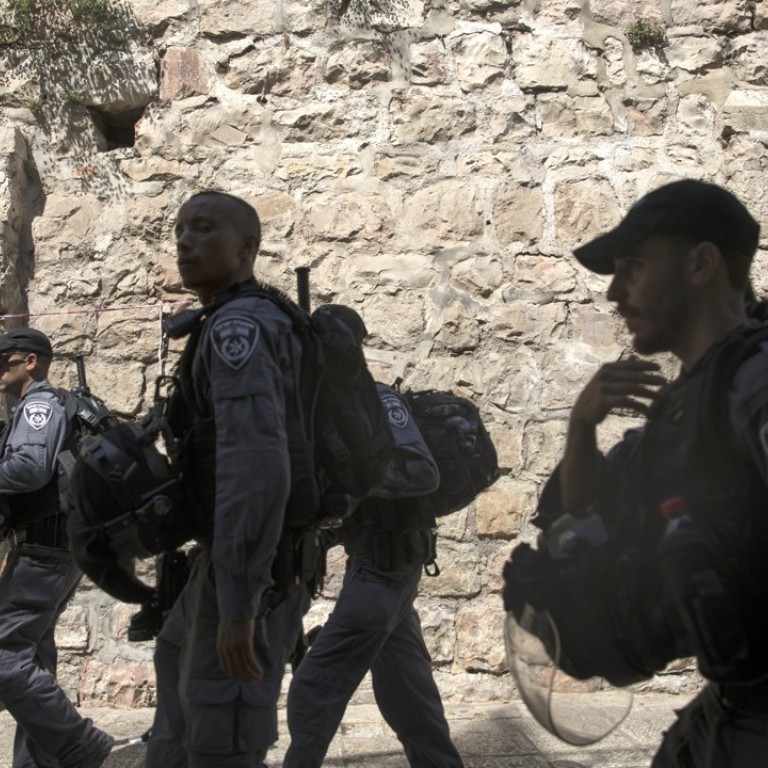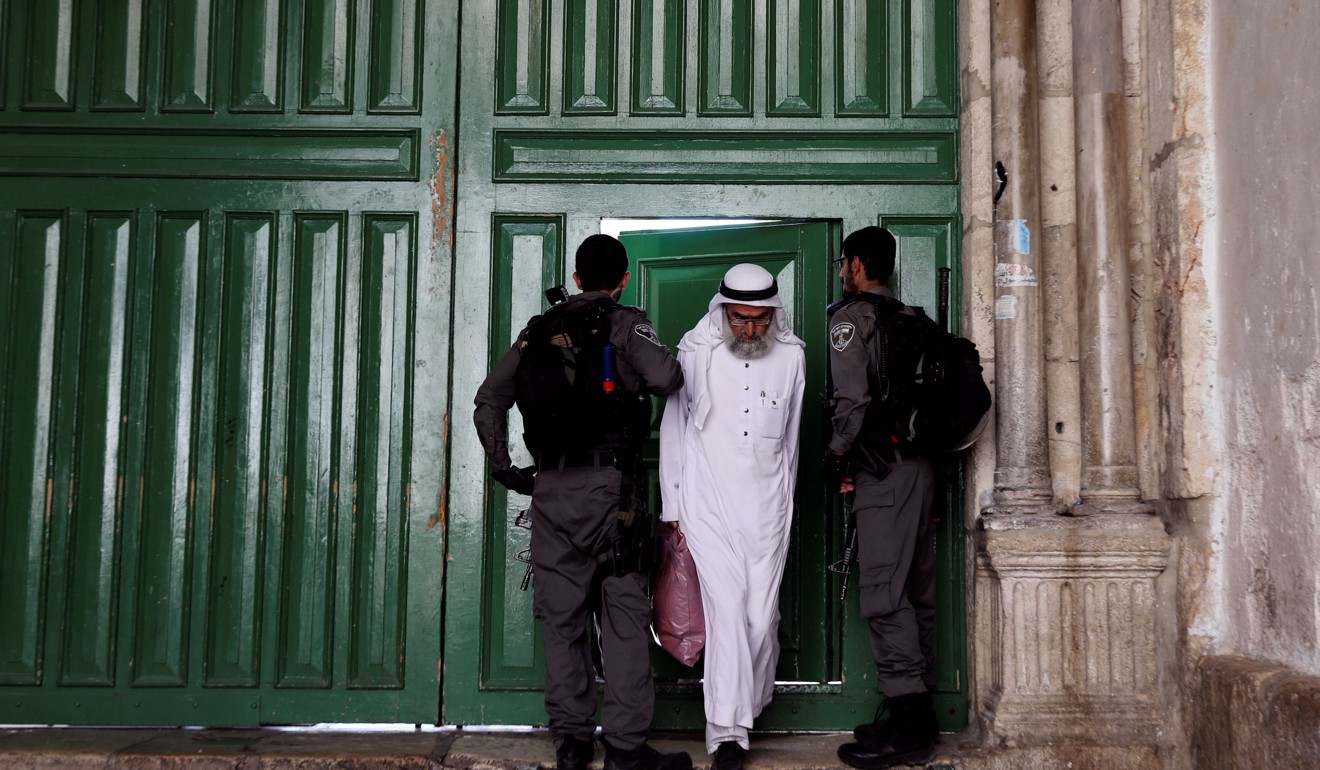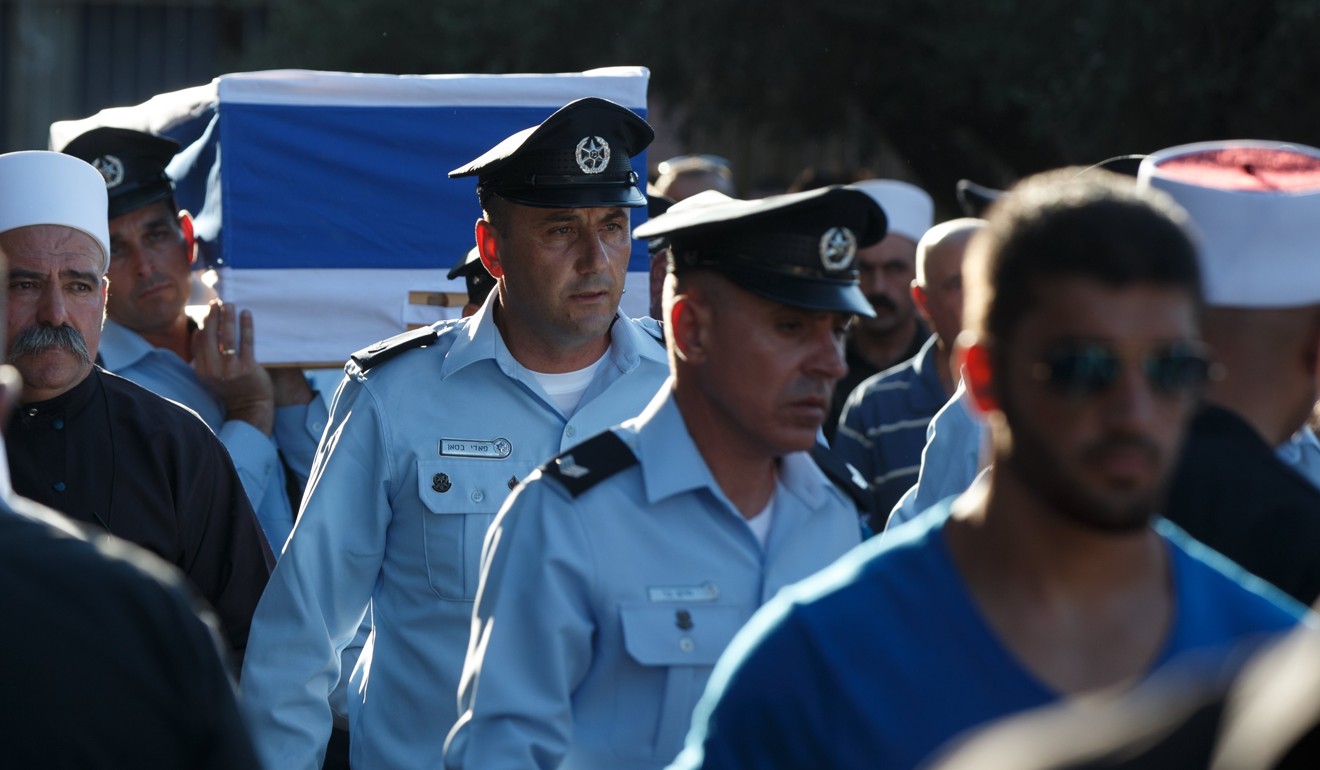
Jerusalem holy site closed after deadly Temple Mount attack
In a sign of the tensions and to diffuse any potential violence at Jerusalem’s holiest site, President Mahmoud Abbas held a phone call with Israeli Prime Minister Benjamin Netanyahu. During the phone call, the Palestinian leader expressed “strong rejection and condemnation” of the attack in Jerusalem’s Old City.
Abbas also called on Israel to lift the closure on the holy esplanade, the site of the Al Aqsa Mosque and the Noble Sanctuary shrine, warning that the move could have “consequences.”
In an effort to contain a fallout, Netanyahu said that rules for worship and visits at the holy site would not be affected. However, he also said in a released statement that the police investigation of the attack would continue through the weekend and the plaza – holy to Jews and Muslims – might remain closed until a situation assessment on Sunday. Israeli security officials vowed to tighten security checks around the holy site.

Jordan, which under its peace treaty with Israel is the official custodian of the Muslim holy sites and runs the Waqf religious authority there, also called on Israel to immediately reopen the complex.
In the hours after the attack Israeli security officers detained Jerusalem Grand Mufti Muhammad Ahmad Hussein, who called on Muslims to defy the Israeli closure.
“The government confirms its rejection of any assault on the rights of the Muslims in practising their religious rites in their holy sites,” said Jordanian government spokesman Mohammad Momani in a report on the official Petra News agency.
In two tweets on Friday afternoon, US peace envoy Jason Greenblatt, who has been meeting with Israeli and Palestinian officials here this week, welcomed Abbas’ call to Netanyahu as “important” and condemned praise for the attack by Palestinian militant groups.
“Terrorism must be renounced and unconditionally condemned by all,” he wrote.

A spokesman for Egypt’s foreign ministry voiced concern that the violence could undermine efforts to revive peace negotiations and called on the sides to “exercise restraint”.
The fighting inside the complex was one of the worst incidents of violence on the Temple Mount in years. The plaza is the site of the ancient Jewish holy temple and revered by Muslims as the spot where the Prophet Mohammed ascended to heaven.
Police said the attack occurred shortly after 7am. The three attackers had just left the religious complex and opened fire on police nearby, using improvised machine guns, authorities said. In a police video purporting to show the incident, two gunmen appear just outside the entrance to the plaza and ambush two policemen from behind at a checkpoint.
After the attackers retreated to the mosque complex, teams of Israeli police forces entered the esplanade in pursuit and opened fire, killing three. Video from the Temple Mount esplanade showed Israeli security forces taking cover amid a hail of gunfire, and police shooting a man at close range.
“An incident like this, to the best of my memory, is unprecedented – the use of live weapons and firing from within the Temple Mount complex,” said Israeli Public Security Minister Gilad Erdan. “The terrorists desecrated the holiness of the mount.”
The slain officers were identified as Hail Satawi, 30, of Mughar and Kaamil Snaan, 22, of Hurfeish, both towns Arab Druze villages in northern Israel.
Police identified the attackers as Mohammed Ahmed Mohammed Jabarin, 29, Mohamed Hamad Abdel Atif Jabarin, 19, and Mohammed Ahmed Mufdal Jabarin, 19. Police spokeswoman Luba Samri said the attackers were from the Israeli Arab city of Um El Fahm and were Israeli citizens.
Netanyahu ordered that mourning tents in the Um El Fahm be banned, indicating the potential to sow tensions between Israeli Jews and the country’s one-fifth Arab minority.
Police investigators will be focusing on how the gunmen were able to smuggle the weapons past Israeli security forces and Waqf guards into the holy compound.
Violent clashes on the Temple Mount have been the spark for prolonged and deadly waves of Israeli-Palestinian violence in the past: rioting on the plaza that broke out in 2000 after the visit of Israel’s Ariel Sharon to the site sparked an uprising – dubbed the Al Aqsa Intifada – that lasted several years.
Frequent calls by Israeli right wing politicians to assert sovereignty and visits to the plaza by religious Jews who seek to defy a police ban on non-Muslim worship on the Temple Mount have spurred accusations among Muslims of an Israeli plan to tighten control and limit access to worshippers.

